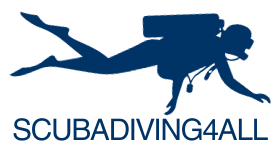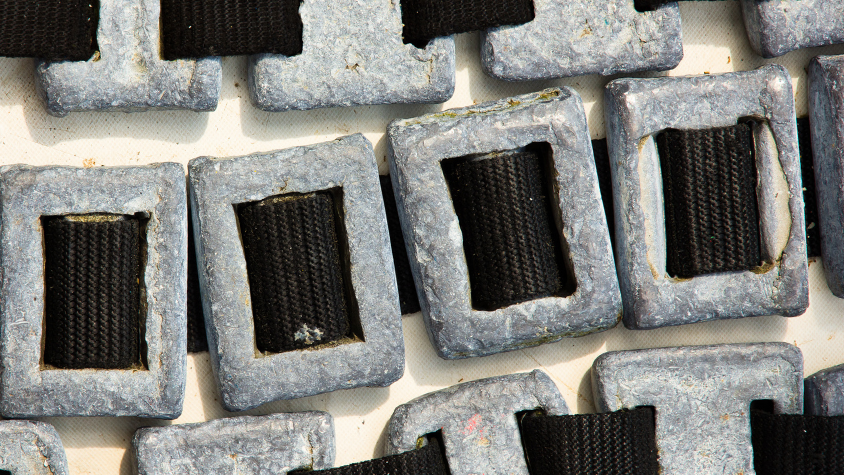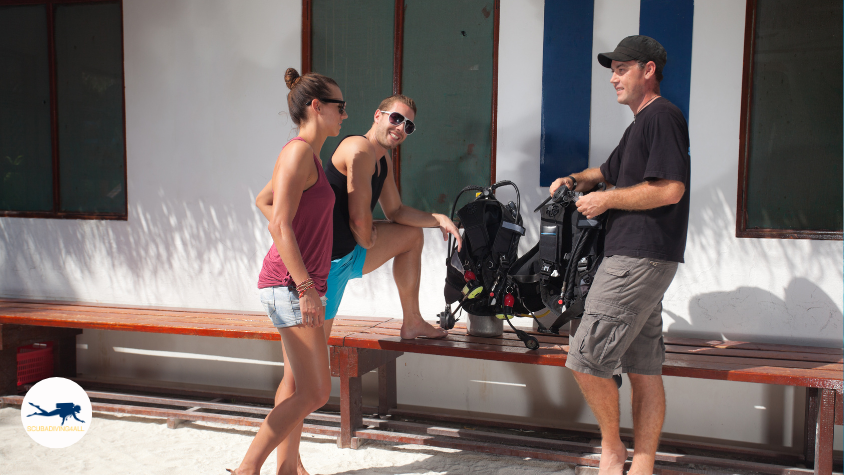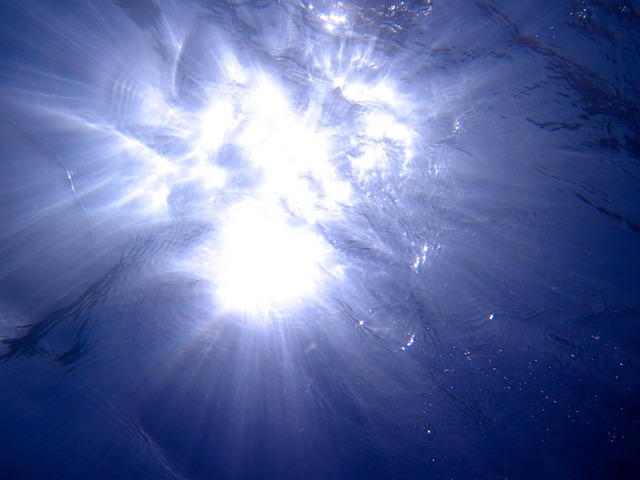Imagine the thrill of exploring the underwater world, swimming alongside marine life, and discovering hidden treasures beneath the surface. Scuba diving offers an unparalleled experience, but to truly enjoy it, you need to choose the right scuba equipment for your dive. In this comprehensive guide, we’ll take you through the essential scuba diving equipment, the advanced gear that can enhance your dive, and how to select the perfect gear for different dive locations.
We’ll also discuss the pros and cons of buying vs. renting scuba dive gear and provide tips for choosing and maintaining your equipment to ensure its longevity and performance. Ready to dive into the world of scuba gear? Let’s begin!
Key Takeaways
Choose the right scuba gear tailored to your needs and preferences for a safe, comfortable and enjoyable underwater experience.
Enhance your dive with advanced equipment like lights, knives, buoys & compasses for improved visibility & navigation.
Select & maintain the perfect gear depending on dive location. Follow tips for maximum performance & safety!
Essential Scuba Diving Gear

The appropriate basic scuba diving kit includes:
Mask
Snorkel
Fins
Buoyancy control device (BCD)
Regulator
Wetsuit or drysuit
Diving computer
Each equipment component contributes significantly to your safety and underwater enjoyment. Hence, it is worthwhile to invest in high-quality gear tailored to your needs and preferences.
The subsequent parts will elaborate on each essential gear item, highlighting their significance, functionality, and guidelines on selecting the most suitable ones for your dive. Keep in mind, quality scuba gear enriches your diving experience and guarantees underwater safety.
Mask and Snorkel
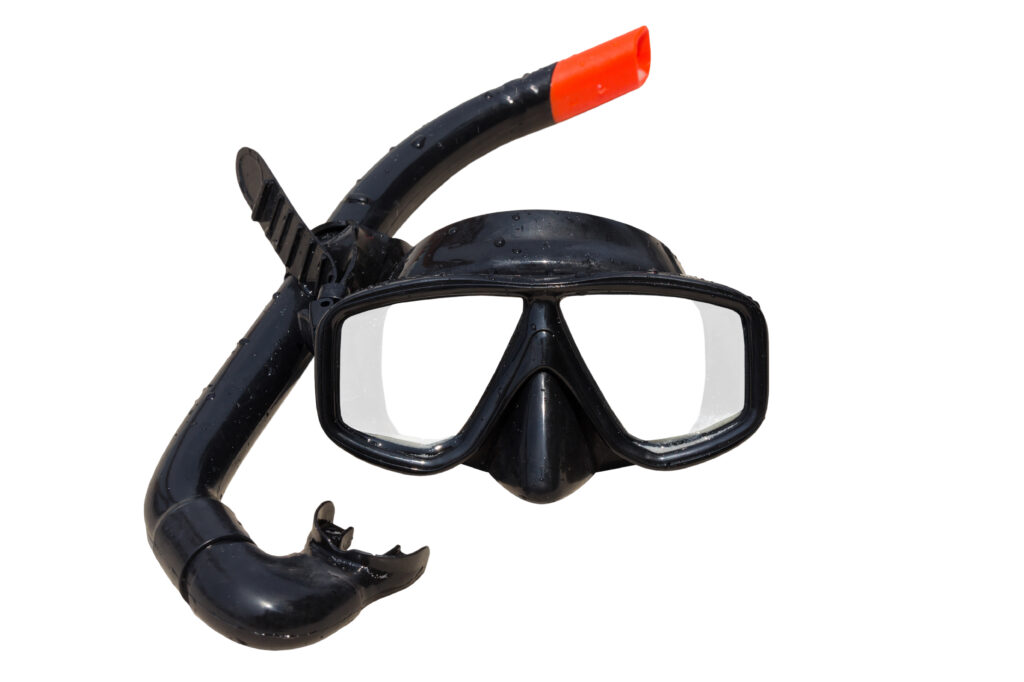
A properly fitting mask and snorkel are necessary for underwater visibility and seamless surface swimming. The mask forms an airspace in front of your eyes, enabling clear vision and focus underwater. When choosing a mask, it’s necessary to ensure a watertight fit that gives you the confidence to navigate the ocean’s depths.
Regarding the snorkel, consider factors such as:
Comfort
Breathability
Dryness
Strength
Ease of use
Keep in mind, the correct mask and snorkel will enrich your underwater experience and allow you to appreciate the underwater world’s beauty.
Fins
Fins play a significant role in providing control and agility during dives, helping you make the most of your leg muscles’ power and allowing you to move efficiently through the water. There are various types of fins on the market, such as full foot fins and open heel fins. Full foot fins are great for warm water, while adjustable fins with booties make shore diving a breeze and provide protection from uneven terrain.
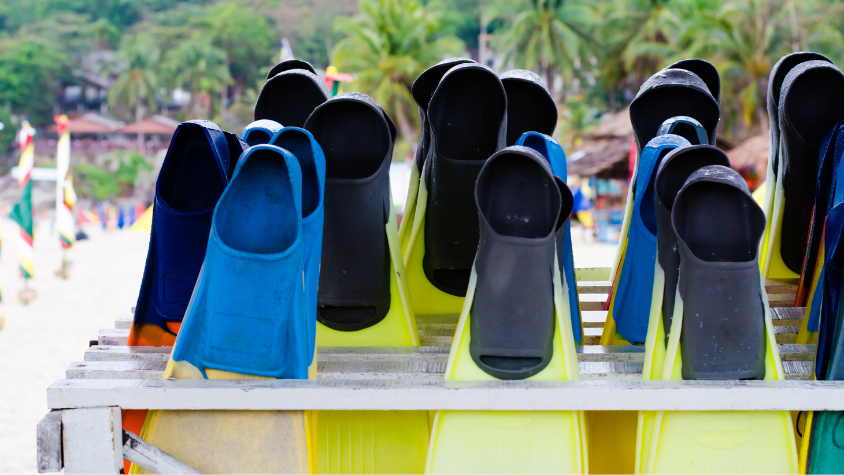
When selecting fins, consider aspects like the diving conditions, your expertise level, and your budget. The right pair of fins can help avoid muscle fatigue and cramping, enabling you to relish your dive to its utmost.
Buoyancy control device BCD
A BCD (Buoyancy Control Device) is a must-have piece of scuba diving equipment that helps divers explore the underwater world with ease by allowing them to adjust their buoyancy with a simple inflation or deflation of air. Recreational diving features two exciting BCD styles – jacket BCDs and back-inflation BCDs. Each unique style offers its own distinctive benefits that divers can enjoy. Jacket BCDs provide an increased sense of safety at the surface, while back-inflation BCDs help divers achieve a better trim underwater, making them great choices for an enjoyable and safe dive.
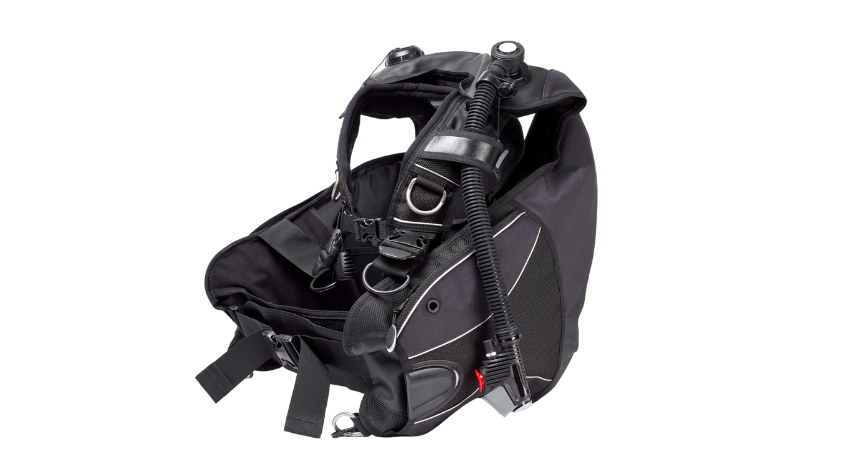
When choosing a BCD, make sure:
It fits you well
The valves, adjustments, straps, and pockets are readily accessible and manageable
The inflator hose is within reach with clearly marked inflate and deflate buttons operable with one hand
Experimenting with various models during actual dives can assist you in finding the ideal BCD that meets your needs.
Diving regulator
A diving regulator is an essential piece of equipment that enables you to breathe compressed air while underwater. Regulators come in a wide range of prices, from $225 to $1,600, making it important to choose one that suits your budget and diving conditions. Consult the knowledgeable staff at your local dive store, get advice from experienced divers, and review ScubaLab’s unbiased tests and reviews to find the perfect scuba diving regulator for you.
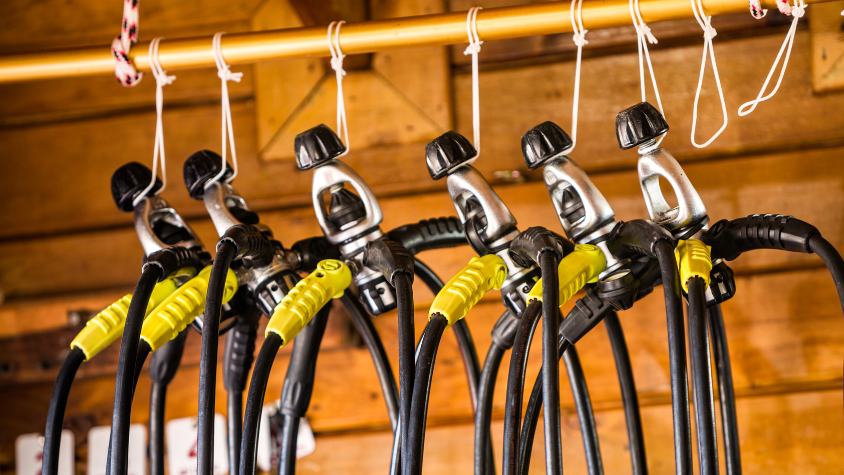
When choosing your initial regulator, remember to consider the following:
The water temperature where you’ll be diving
Choose a well-known brand
Select a model that aligns with your specific requirements (water temperature range, DIN or Yoke connection, breathing effort)
Invest in the finest regulator within your budget.
Wetsuits and Drysuits
Correct exposure protection is necessary for a comfortable and enjoyable dive, and choosing the appropriate wetsuit or drysuit based on water temperature is necessary. Wetsuits come in different thicknesses, offering thermal comfort for various water temperatures. A properly fitting wetsuit should snugly fit like a second skin, without any gaps or folds, allowing ample flexibility for free movement in the water.
For diving in cold water conditions, drysuits are the ideal choice, ensuring you stay dry and warm even in colder climates. When selecting a drysuit, consider the type of diving you do, the level of thermal protection you need, and which material works best for you. Keep in mind that getting a drysuit certification can further enhance your skills and safety as a drysuit diver.
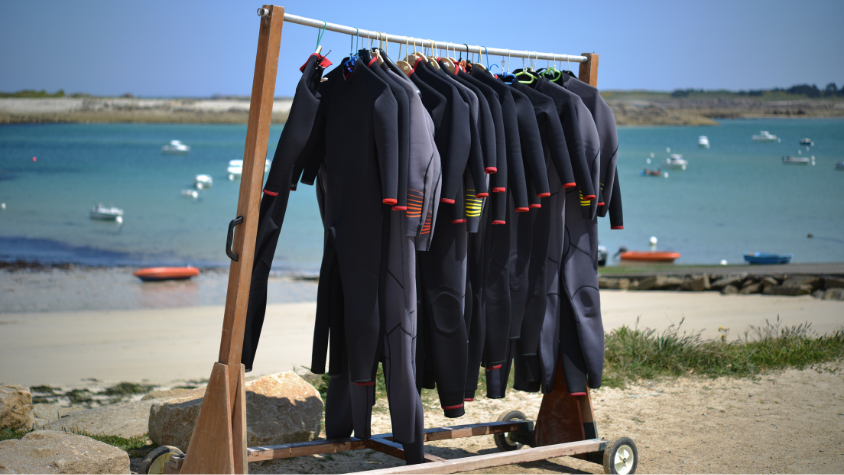
Diving computer
Dive computers are pivotal in tracking dive data and guaranteeing your safety during dives. They offer a remarkable range of features, including:
Depth and bottom time monitoring
Automatic no-decompression status recalculation
Ascent rate and tank pressure monitoring
Alerts for safe flight times
Dive logging
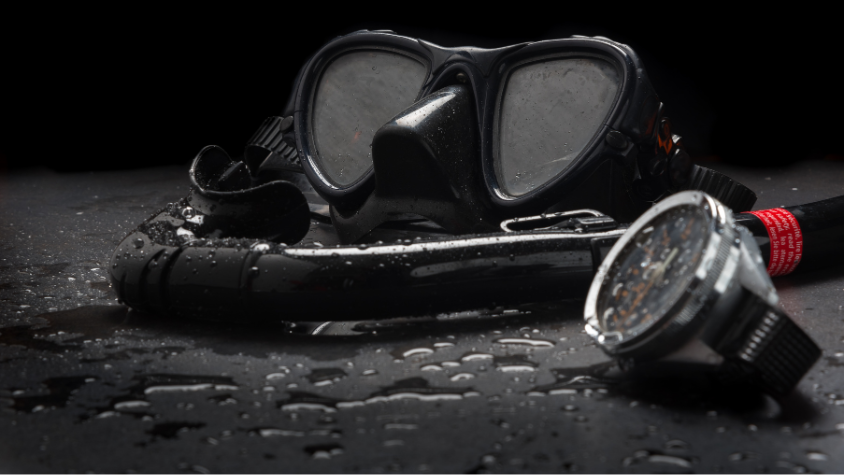
Dive computers come at different price points, from $300 to over $1,300, enabling you to find one that fits both your budget and requirements.
When selecting a dive computer, consider factors such as:
Water-tight and pressure-proof labels
Preferred style
Rechargeable batteries
Bulb types
Light output
Light beam
Brightness
Battery life
Ease of use
Depth rating
Investing in the right dive computer can greatly enhance your diving experience and ensure your safety underwater.
Advanced Scuba Diving Equipment
After you become proficient in the basics and gain more scuba diving experience, you might consider advanced diving equipment to further enrich your underwater adventures. This part will cover some advanced scuba diving gear, including:
Dive lights
Knives
Surface marker buoys
Dive compasses
These advanced gear items are designed to improve your diving experience, ensuring better visibility, safety, and navigation. Let’s take a closer look at each of these advanced diving equipment items and learn how they can benefit your dives.
Dive Lights
Dive lights are essential for night and cave dives, providing visibility and enhancing the colors of your daytime dives. When selecting a dive light, consider important features such as:
Brightness
Beam angle
Temperature resistance
Battery life
Durability
Ergonomics
Mounting options
The average battery life of a dive light can vary depending on the specific model and usage, but it is common for dive lights to have a battery life of several hours, ranging from 2 to 10 hours.
With a suitable dive light, you can effortlessly navigate the underwater environment during your scuba dive, be it cave diving, night diving, or merely wishing to highlight the vibrant colors of marine life during daytime dives.
Dive Knives
Dive knives play a critical role in underwater safety and communication. They can be a lifesaver if you ever find yourself tangled in fishing lines or underwater plants and can also be used to grab the attention of a fellow diver by tapping the back of the handle on your tank. When searching for a dependable dive knife, make sure to check for features like a fixed blade or folding blade, dual straight and serrated edges, and blade material such as stainless steel, titanium, or alloy.
Possessing a dependable dive knife is a necessary supplement to your scuba gear, guaranteeing your safety and efficient communication with other divers.
Surface Marker Buoys and Dive Compasses
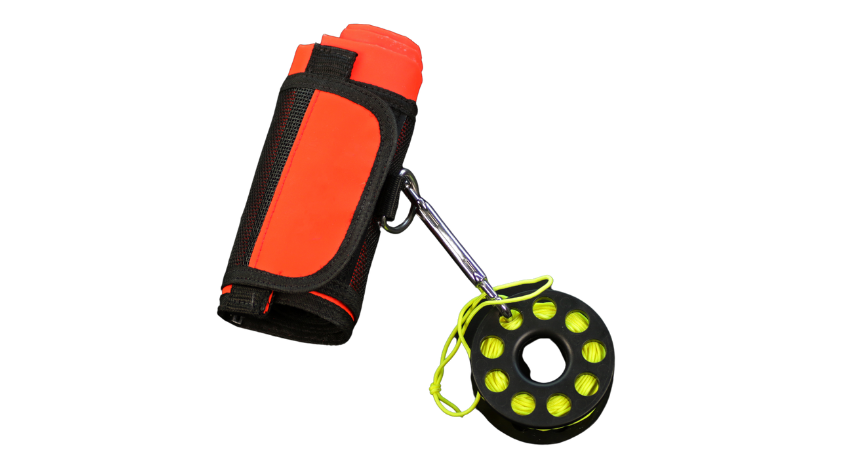
Surface marker buoys (SMBs) and dive compasses are valuable tools for enhancing your diving experience. SMBs are great for marking your location underwater, making it easier for your dive buddy or boat crew to spot you. Dive compasses, on the other hand, are incredibly helpful for navigating underwater, ensuring you stay on course during your dive.
When selecting a surface marker buoy and dive compass, consider important features like:
Luminosity
Size
Readability
Accuracy
Tilt compensation
Hemisphere calibration
Mounting options
Durability
Investing in these advanced diving tools and using a dive boat will enhance your navigation skills, improve your safety, and maximize your underwater adventures.
Scuba Gear for Different Dive Locations

Just like the underwater world differs across locations, so does the scuba gear requirement for different dive locations. This part will cover the recommended gear for diving in warm, cooler, and cold water conditions.
By choosing the right dive equipment for your dive location, you can ensure maximum comfort and safety during your underwater adventure.
Warm Water Diving Gear
Diving in warm water conditions requires lightweight and comfortable dive gear to make the experience enjoyable. This includes a mask, snorkel, fins, and a wetsuit suitable for warm water conditions. When selecting a wetsuit for warm water diving, make sure to check for the perfect fit, the right thickness, four-way stretch neoprene, secure seals, and any special features that you desire.
The right gear for warm water diving will guarantee comfort and protection while exploring underwater, enabling complete immersion in your dive’s beauty and wonder.
Cooler Water Diving Gear
When diving in cooler water conditions, you’ll need gear that provides added insulation and protection to ensure a safe and comfortable dive. Thicker wetsuits, dive lights, and adjustable fins are recommended for cooler water diving. In addition, it’s important to invest in a high-quality dive light that offers brightness, beam angle, temperature resistance, battery life, durability, ergonomics, and mounting options.
Selecting the correct gear for cooler water diving will allow you to relish your underwater adventure while staying warm and shielded from the elements.
Cold Water Diving Gear
Cold water diving requires specialized gear to keep you dry and warm in colder climates. Essential gear for cold water diving includes:
Drysuits
Warm gloves
High-end regulators
Dive lights
When selecting a drysuit, consider the type of diving you do, the level of thermal protection you need, and which material works best for you.
The right gear for cold water diving is vital for your safety and comfort, guaranteeing a full enjoyment of your underwater experience, even in the coldest conditions.
Buying vs. Renting Scuba Gear
Choosing between buying or renting scuba gear can be challenging, as both options come with their pros and cons. Owning your gear enables you to invest in your diving experience, offering the liberty to dive whenever you wish and guaranteeing your equipment’s proper maintenance and customization to your needs. Conversely, renting gear can be a more budget-friendly option, particularly if you dive infrequently or want to test new equipment before buying it.
Ultimately, the decision to buy or rent scuba gear will depend on your diving needs, preferences, and budget. When buying scuba gear, consider factors such as how frequently you dive, the cost of renting gear, and the scuba gear cost of maintaining your own gear when making your decision.
Tips for Choosing and Maintaining Your Scuba Gear
This part will offer useful advice on choosing the appropriate scuba gear for your needs and maintaining it for durable use. Adhering to these tips will help keep your gear in excellent condition, offering reliable performance and safety during your dives.
Choosing the Right Gear
When selecting scuba gear, it’s important to consider factors like your height, weight, build, physical fitness, rate of breathing, the diving conditions, and the intended diving location. Additionally, take your budget and preferences into account, and research the different gear options and compare prices to find the best value for your money. If you’re just starting out or only planning to use the gear for a short period of time, consider renting gear as a more cost-effective solution.
By carefully considering your needs and preferences, as well as the diving conditions and your budget, you can select the right gear to ensure a safe, comfortable, and enjoyable diving experience.
Maintaining Your Gear
Proper care and maintenance of your scuba gear are essential for maximizing its longevity and performance. Here are some steps to follow:
After each dive, rinse your gear with fresh water.
Use cleaning products designed for scuba gear to remove salt, chlorine, and other contaminants.
Soak your gear in warm water.
Use a stiff brush and white vinegar for minor corrosion.
Thoroughly rinse all items to ensure they are clean.
Allow the gear to dry completely before storing it.
Store your gear in a cool, dry place away from direct sunlight and other sources of heat.
Adhering to these maintenance tips will help maintain your scuba gear, including your scuba tank, in excellent condition, guaranteeing reliable performance and safety during your underwater adventures.
Summary
In this guide, we’ve explored the essential scuba diving equipment, advanced diving gear, and gear recommendations for different dive locations. We’ve also discussed the advantages and disadvantages of buying and renting scuba gear and provided tips for choosing and maintaining your equipment.
Armed with this knowledge, you’re now ready to make informed decisions about the right scuba gear for your needs, ensuring a safe, comfortable, and enjoyable diving experience. So gear up and embark on your next underwater adventure with confidence!
Frequently Asked Questions
What equipment do scuba divers use?
Scuba diving requires a mask, fins, snorkel, buoyancy compensator device, regulator, weights, dive computer, and wet/dry suit to ensure a safe and enjoyable underwater experience.
Which of the 11 basic scuba diving equipment is most important?
A good mask and snorkel are essential scuba diving equipment. Fitting correctly is paramount when it comes to selecting the right mask for you, as faces come in all shapes and sizes. Investing in a quality mask and snorkel from the start will ensure your scuba diving adventures are safe and enjoyable.
What scuba dive gear do Navy SEALs use?
Navy SEALs use three primary types of underwater breathing gear: open circuit compressed air, closed circuit (100% oxygen), and closed circuit (mixed gas). These systems are also used by other US Special Operations Forces that have an amphibious capability.
How do I choose the right scuba gear for my dive location?
Choose the right gear for your dive location by considering the water temperature, diving conditions, and your experience level. This will ensure you get the most out of your dive safely.
What is the difference between a wetsuit and a drysuit?
Wetsuits trap water against the body to provide insulation, while dry suits form a watertight seal around the body to keep it dry and warm.
